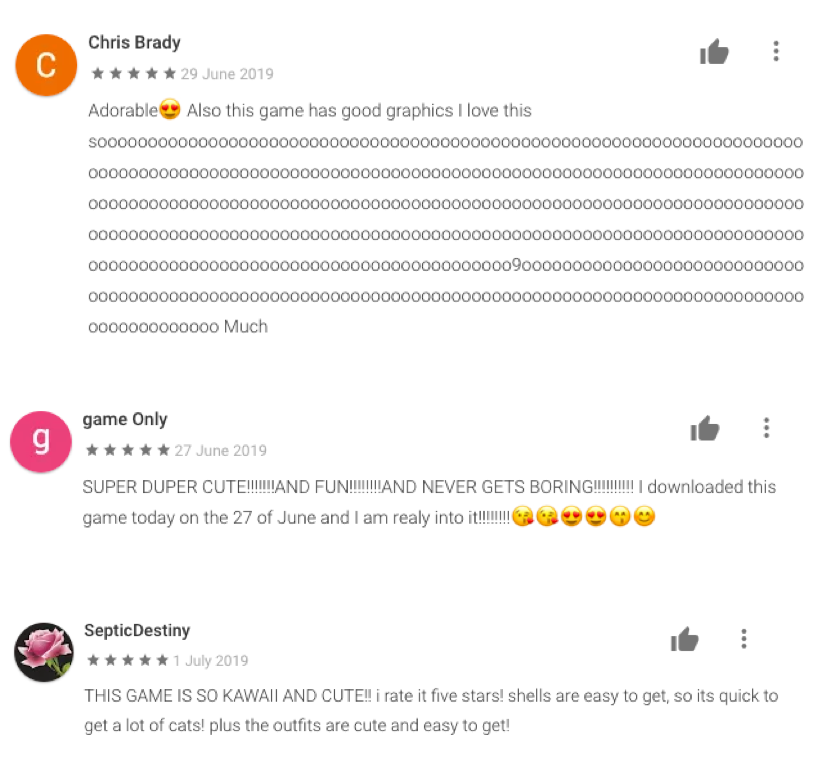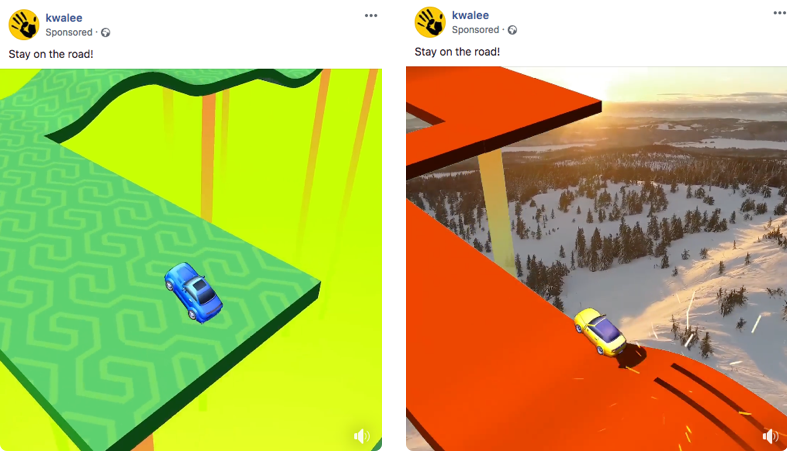The goal of marketing your mobile game? Drive awareness and increase installs. It sounds simple when you narrow it down to that. But there’s a world of tools and techniques you’ll need to research to get it done right.
The mobile games industry is a vast one, filled with thousands of games. And making yours stand out is just half the battle. So to give you a fighting chance, we’re rounded up the best articles and resources for you to get started.
Let’s dig in.
First off, understand your audience
Before you even consider sorting your marketing strategy, you need to know who you’re selling to. Sure, you made the game – so you should have an idea of who your audience is. But you’ll need to understand exactly what your players’ motivations are and why they’ll want to play your game.
Here’s what we recommend reading:
1. Research the eight most common player motivations
This article is an in depth breakdown of the eight most common player motivations for mobile games. From competitive play to relaxation, Will Freeman explains what motivates players and how to adapt your game to entice different players.
Photo by Pandhuya Nike on Unsplash
2. Read up on the Bartle Player Taxonomy
The Bartle Player Taxonomy looks at the psychology of players, and classifies them based on what actions they take while they play. It’s based on a paper written by Richard Bartle back in 1996. And it’s a great place to start when learning more about the motivations of your players.
Market your game during your soft launch
Soft launching your game not only helps you perfect your levels and squash bugs, it also helps build a loyal following and gets people chatting about your game before you even launch. Here’s what you can do:
1. Learn from the best
We analysed three real-life examples where developers successfully built a community before launching their game. It’s filled to the brim with useful insights and tips from some of the most popular developers, and should give you some inspiration for your own game.
2. Create a press kit for journalists
Contacting the press and asking journalists to review your game is always a good shout. They can raise awareness and get players searching for your game, which will boost your organic installs. But you don’t want to just send them a game key to play. You need to convince them to try it out first. So here’s how to create the perfect press kit.

Photo by Kenny Eliason on Unsplash
3. Perfect your email marketing strategy
This is something you can do early on. Once you have a following, a great way to keep your loyal players keen is by sending regular updates on your progress. Ask their opinions, get them to vote for new features, or just send news as and when you have it. Here’s a breakdown of how to do it well.
4. Start shouting on social
Build relationships with your audience through social media. Answer their questions, share their art, keep them updated, and interact with them – regularly. Depending on your game, you can even create a fanbase.
Our friends at Adjust wrote a guide to social media marketing. And the experts at Megacool have some advice around gif sharingtoo.
5. Get social media influencers to create some hype
Influencers are always looking for early access to new games. Their viewers love this type of content, and watch regular streams and reviews to find the next best game to try out. You can reach out and give influencers game keys and special discount promotions for their subscribers.
A lot of developers do this. The crew at Matchmade put together a couple of guides to help you stand out and find the right influencers to work with. Here’s part one of their series. And when you’re done, make sure to head on to part two.
Tidy up your game’s store page
Your App Store listing is like the front of your shop. And the last thing you want is someone walking past your window. So it needs to grab people’s attention. A bad icon, boring copy, or dull pictures can drive potential players away. Here’s how to avoid that:
1. Find your niche
The big publishers will always have an advantage over you. They have an ecosystem of players, years of experience, and an abundance of budget. So how do you compete? You can find a niche.

That’s what Platonic Games did. They found a gap in the market by researching keywords on the App Stores. And they built a unique community and following, which they actively engage with. Here’s how they did it.
2. Get advice from the best
We’ve spoken to a few different experts and publishers on how they perfect their app store listing. They all have valuable advice on how to do this right.
Games’ journalist, Jupiter Hadley, chatted to a few industry pros and rounded up her findings. And TapNation also shared their experience and top tips for reaching the top charts.
3. Sell your game with your words
The devil’s in the details. You’re competing with every other game listed on the stores. So you want to make sure you excite any new players with your words. Boring language can be such a turn off.
We asked professional copywriter and editor, Emma Wilkin, for her best tips on writing copy that sells. other she rounded up all of her advice for you. It’s definitely worth a read.
4. Perfect your creatives
The words are only half the work. Your images and trailers will show your players what your game is all about. You should never judge a book by its cover, but players will always judge your game by how it looks.
The first resource we have to help get your creatives in order is from Homa Games. They wrote a report on optimizing app store images. This is mainly for hyper-casual games, but a lot of the rules apply to other genres, too.
Another article to read is Nathan Lovato’s guide to game trailers. He covers the dos and don’ts to crafting brilliant game trailers, which you can use on your store page.
Nail your user acquisition
Lastly, you need to think about your user acquisition strategy. Which networks to work with, how to get the best ad creatives, and how to lower your cost-per-install (CPI). Here are the top articles we’ve done:
1. Read up on how in-game advertising works
Sounds silly. But perfecting your ad and user acquisition strategy is a beast of its own. Ideally, you’ll have a couple of experts in your team – reviewing campaigns, lowering your CPI, and increasing your player’s LTV.
To get you started, you’ll first want to get familiar with the industry terminology. We’ve also got a beginner’s guide to header bidding and ad mediationwhich should cover the basics.
2. Get creative with your ad creatives
We’ve got a breakdown of the top ad creative strategies to help you get new players in your game. It breaks down all of the different ad types, when to use them, and shows real life examples from leading studios. We have a specific guide to perfecting playable adstoo.

3. Research the best ad networks
There are plenty of ad networks to choose from. Tenjin actually released a report on the top ad networks in 2022. They focus on hyper-casual, but it should give you an idea what to look for when picking your own.
Think we missed something?
get in touch, and we’ll add it to the list. And if you enjoyed this article, make sure to subscribe to our newsletter (form below). We’ll keep you updated with the last industry news and guides.
